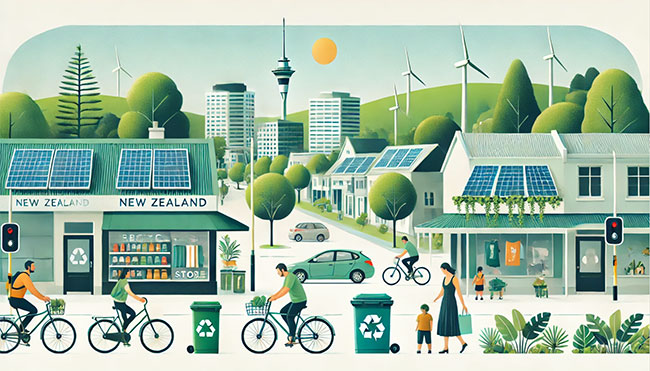
New Zealand is one of the top 10 Organisation for Economic Cooperation and Development (OECD) countries with the most ‘permanent migrants’. Home to over 154,000 migrants based on 2021 stats, the country is appreciated for its safety and security, economic stability, work-life balance, and stunning natural beauty. The latter is fiercely protected by the country with sustainable measures in place to make Aotearoa, the Maori name for New Zealand, as eco-friendly as possible. As a new resident, here are ways to live sustainably in the country you now call home.
Adopt the ‘reduce, reuse, recycle’ philosophy
The country has a well-established recycling system. Get to know the local recycling guidelines and dispose of waste responsibly. Take the initiative to look for ways to reduce your waste at the source like purchasing products with minimal packaging or opting for reusable stuff such as shopping bags and glass bottles. Browse through thrift stores, look at garage sales, and shop at online sites for pre-loved clothing, furniture, and household items. These practices extend the lifespan of products and reduce demand for new ones. At home, think of composting food scraps and yard waste. Check if your municipal council offers bins or advice on establishing a compost system at home.
Part of sustainable living is to ensure that your family has adequate cover if the unthinkable happens. For example, life insurance is one the things that you might consider even though New Zealand boasts of a strong social safety net. It provides financial cover for your loved ones in case of unexpected demise. Hence, financial security can provide you peace of mind and alleviate the burden on your family. Life insurance can even be used as a tool to achieve long-term financial goals for your loved ones as some policies offer savings features that accrue value over time.
Energy-efficiency and transportation
New Zealand is a leader in renewable energy generation with geothermal and hydroelectricity playing a significant role. Around 82% of the electricity in the country is produced using renewable sources. Thus, you might want to choose energy providers that invest in renewables. Furthermore, turn off lights, electronics, and appliances when not in use and buy energy saving equipment to reduce your environmental footprint. Make use of the abundant sunshine by using natural light, whenever possible. Opt for natural ventilation to reduce dependence on airconditioning.
Try to use sustainable transportation whenever you can. The good news is New Zealand’s cities are becoming increasingly walkable and cycle-friendly. For instance, 61% of residents in Wellington are within 15 minutes’ walk to amenities. Walking and cycling are good options for short trips while public transport is an alternative for longer distances reducing reliance on cars. Consider carpooling with colleagues, friends, or neighbors and when purchasing a car, prioritize fuel-efficient options or consider electric vehicles (EVs). Living practices at home that are eco-friendly include taking shorter showers, fixing leaky faucets, and using water-efficient appliances.
Sustainable living in New Zealand is about making conscious choices in your daily life and activities. In addition, following local rules and regulations on waste management can also help in protecting and keeping the environment pristine.
 My Favourites
My Favourites









Speak Your Mind